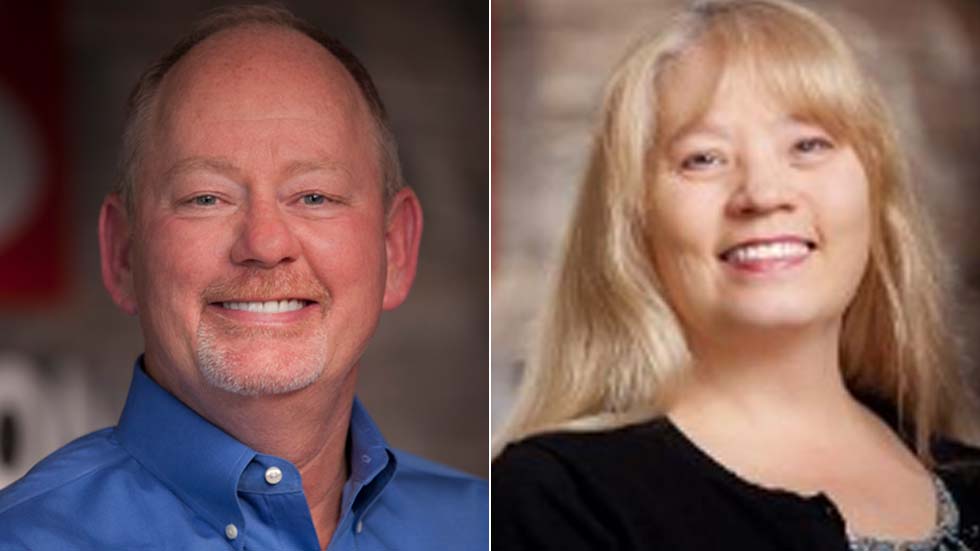Scarcity Schism
Content regulation is predicated on spectrum scarcity. Allowing unlicensed devices in taboo TV channels is predicated on the notion that spectrum is plentiful. Help me out here, said Dave Donovan, president of the Association for Maximum Service Television.
"I can't resist highlighting the irony of some groups pushing the unlicensed approach," he said at a recent Media Institute luncheon in Washington, D.C.
Donovan and MSTV have been assiduous in scrutinizing the federal government's intent to allow unlicensed devices into taboo broadcast bands. The bands are considered taboo because putting TV signals side by side causes them to interfere with one another. Therefore, TV station channel assignments are staggered in a given market, e.g., 2, 4, 7, 11, 13.
With the rise of wireless technology over the last decade, the demand for spectrum has increased. Broadcast taboo channels, also referred to as "white spaces," are considered prime territory. Proponents of unlicensed devices, chiefly Intel and Microsoft, say they can manufacture "smart" radios--transmitters and/or receivers that sense TV signals and jump to another swath of spectrum. Broadcasters are skeptical.
Donovan: "The problems have started to emerge in radio, where unlicensed devices designed to allow subscription satellite radio service to operate through your car radio are interfering with neighboring car radios. NPR, the unfortunate victim in many of these cases, has been electronically 'shouted down' by a competing service."
A good deal of the momentum behind unlicensed devices is the state of broadband deployment in the United States. Citing the International Telecommunication Union in a recent editorial in The Washington Post, FCC Commissioner Michael Copps said the nation ranks 21st, "right after Estonia," in terms of broadband deployment and pricing. He said the situation was an outrage, and called on his fellow commissioners to open up white spaces for wireless broadband, tout de suite.
Congress has also been pushing to open white spaces. A provision to do so in the stalled telecom bill went unopposed. And even though FCC Chairman Kevin Martin has said he would prefer to finish the digital transition before opening white spaces, he abides the will of the Hill. In September, the commission issued a First Report and Order and Further Notice of Proposed Rulemaking allowed fixed low-power devices to operate on unused TV channels. Mobile devices and licensing provisions will undergo further scrutiny under the FNPRM.
Proponents of unlicensed devices argue that having to obtain spectrum through a license auction would impede the development and deployment of new gear. Copps and his fellow Democratic Commissioner Jonathan Adelstein support the unlicensed scheme, as do many public interest groups. Only the Progress and Freedom Foundation has questioned the intent to forego auctions, since spectrum brings beaucoup bucks into the treasury. Free Press, the Consumer Union and others are pushing for an unlicensed scheme, even as they criticize broadcasters about video news releases, public interest obligations and consolidation, all of which are regulated on the premises of spectrum scarcity.
Donovan said the two positions are incompatible because both are based on opposing suppositions about just how much radio frequency spectrum there is out there.
"They cannot have it both ways," he said.
Nonetheless, the work to open taboo channels continues. The FCC order includes a timetable that includes a report on the interference rejection capability of DTV receivers, due next March. Test results on interference from the devices themselves will be issued in July 2007. Next September, the FCC intends to adopt a second report and order specifying final technical requirements for taboo TV-band devices. The commission will begin accepting applications to certify those devices in December so they can reach the market by February 2009, the analog TV end date.
Right now, having something to test is a primary concern in the MSTV camp.
"There is no real-world proof that such devices can co-exist with TV receivers. To this end, we agree with the FCC that further testing is necessary. Nonetheless, after several years of FCC proceedings and a year-long debate on Capitol Hill, we still do not have a single unlicensed device that's been offered for testing," Donovan said.
The professional video industry's #1 source for news, trends and product and tech information. Sign up below.
